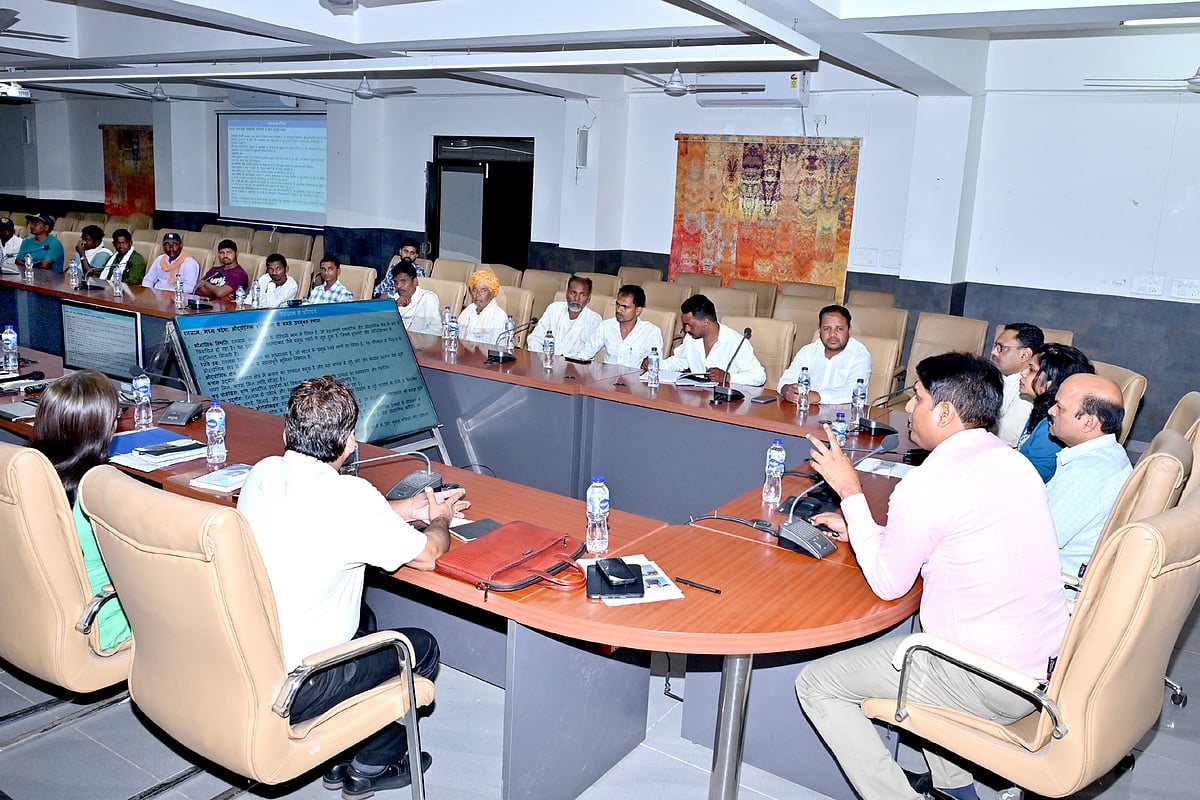Indore (Madhya Pradesh): Indore, which surprised the country by clinching cleanest city tag for five times in a row, has now launched a mass movement for “ground water conservation”.
“With public participation, we will store rainwater received during monsoon underground. As of now, we have decided to ensure that rainwater harvesting (RWH) systems are installed in one lakh buildings till June end,” said municipal commissioner Pratibha Pal while launching a campaign for groundwater conservation on Saturday. On the occasion, IMC released a draft Blue Mater Plan and “Indore’s Water Vision 2025 – From Water Plus to Water Surplus”.
The IMC initially will push industries, commercial establishments, educational institutions, hotels, restaurants etc for installing rainwater harvesting systems.
Pal said that they have also identified 5 wards which will become 100 percent rainwater harvesting wards in the next two months.
Describing Indore as a resilient city, the municipal commissioner said that in the next two to three years, Indore will become the first city in the country which will achieve cent per cent rainwater harvesting.
Citing examples of Chennai and Bengaluru which are almost running out of water, Pal said that it’s high time that Indore should go for complete rainwater harvesting.
IMC wants residents to do rainwater harvesting of water falling on their terraces whereas it will take care of runoff.
There are 29 ponds, more than 58 bawadis and around 600 wells in the city. “We will clear channels of the ponds and rejuvenate them. We will also rejuvenate wells and bawadis,” Pal stated.
She said that the IMC is going to demolish all the encroachments on catchment areas of ponds.
IMC has formed water conservation committees for pushing residents to do rainwater harvesting.
Apply for rainwater harvesting through 311
IMC has empaneled all 168 contractors. If any person wants to get a rainwater harvesting system installed at his house, then he can apply for the same through the 311 app of IMC. Within seven days, the contractor will install a rainwater harvesting system. “We are also setting up a dedicated control centre for rainwater harvesting.
Narmada water costs Indore Rs 45 for per cubic metre, costliest in country
The freshwater sourced from River Narmada and distributed to the city populace is the costliest in the country. Despite adequate water supply, people of Indore depend heavily on groundwater sources to avoid the burden of costly Narmada water. Rapid urbanisation and peri-urban growth leads to lag between demand and supply, especially in resource scarce environments. As the water footprints of the cities grow, they need to pump water from increasing distances up to 70km from Narmada River which costs Rs 45 per cubic metre of water with counting of UFW. While we augment our supply from Narmada River, it is also necessary to explore and develop decentralised solutions to meet growing demands by restoring, conserving the local resources and recycling of wastewater. These measures only can increase the resilience of our water systems against climate change and increasing demands.
Indore among cities under zero water threat: Khare
Citing a WHO report released in February 2019, expert Dr Nishant Khare said that Indore stands on second position in the 30 cities which are under a threat of becoming “zero water cities”. “We may leave Chennai behind, which is a zero water city,” he added. Showing a way forward, he said groundwater and piped water is not unlimited so we have to store rainwater.
Indore underground water level has increased: Lalwani
MP Shankar Lalwani said that the efforts made by the city so far has resulted in increasing ground water level. “For our efforts, we got an award from President Ram Nath Kovind. However, we need to enhance our efforts and store water keeping future needs in mind,” he added.
First we create problem, then go searching for solution: Tai
Former Lok Sabha Speaker Sumitra Mahajan said that people first create a problem and then go for finding a solution to it. She said people first need to feed the ground with water then only think of drawing water from it.
On anvil
Water harvesting compulsory for building set up on plot of 1500 sq ft and above
Penalisation up to Rs 5000 on residents if RWH system is not set up. Up to Rs 5 lakh fine on industrial units.
District administration is going to issue strict guidelines for new tubewells











